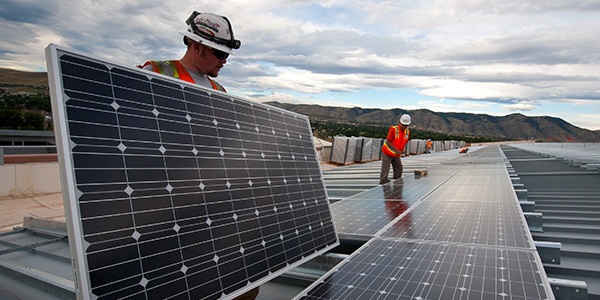State policymakers and corporate renewable energy buyers need to focus on making electricity grids entirely dependent on clean energy sources as the next step in achieving national climate goals, according to Roger Ballentine, a former chairman of the White House Climate Change Task Force.
“We need a net-zero grid before we can have a net-zero economy,” Ballentine, president of Green Strategies, said Wednesday during a panel at the National Association of State Energy Officials’ 2021 Energy Policy Outlook Conference online.
Deficits in renewable energy availability are still filled by oil and gas, Ballentine said, and that forces policymakers and clean energy advocates who were historically against nuclear energy to consider small modular reactors.
“Whatever you take off [the grid], you have to replace,” Ballentine said. With President Biden eyeing net-zero emissions by 2050, nuclear power is a temporary option until more renewable resources are built, he said.
Washington state will rely on hydroelectric and nuclear resources to comply with the Clean Energy Transformation Act, which commits the state to zero-emission electricity by 2045, said Michael Furze, assistant director of the energy division of the Washington State Department of Commerce. “It was a surprise to me to watch that progressive legislative process because it is a divisive issue among environmental justice communities that are active in the energy policy space,” he said.
But Ballentine said that for large renewable energy buyers like Google that are committed to using entirely clean energy, nuclear energy is an option to achieve that goal.
Vulnerable Communities
In the run-up to net zero, state policymakers need to ensure that the benefits of clean energy are equally distributed to communities that have been disproportionately vulnerable to the effects of pollution and climate change, Ballentine said.
Secure data collection from electric grids will guide policymakers in understanding where those communities are and what solutions are available, he said.
Patrick Woodcock, commissioner of the Massachusetts Department of Energy Resources, told RTO Insider that collecting information about energy use is in the pipeline to help the state target communities that could benefit from the renewable energy programs available but that are not participating.
But a siloed government approach will not be enough.
“It does take a federal-state partnership to create a clean energy agenda,” Woodcock said.




